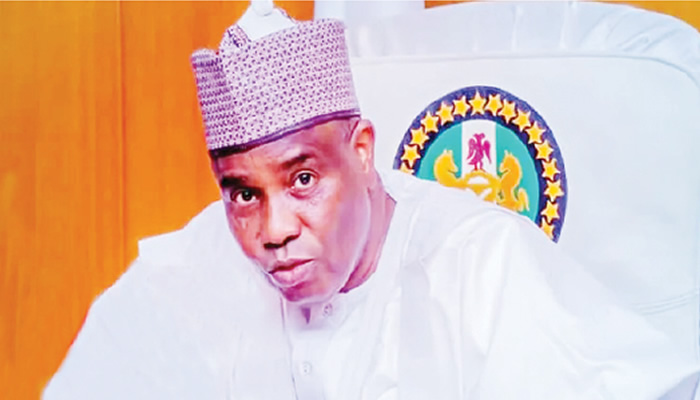Governor Ahmed Aliyu of Sokoto State has embarked on a path of quiet revolution, prioritizing religious and social reforms over the flamboyant political theater that often dominates the state’s landscape. His administration, though frequently accused of downplaying the achievements of his predecessor, Aminu Tambuwal, has implemented a series of policies aimed at reshaping the spiritual and social fabric of the Caliphate state. This approach stands in stark contrast to the recent boisterous welcome Tambuwal received upon returning to Sokoto after an EFCC invitation, a display viewed by the ruling party as mere theatrics. Aliyu’s focus, however, remains firmly fixed on a different kind of legacy, one built on fostering moderation, peace, and inclusivity.
At the heart of Aliyu’s reforms lies a comprehensive overhaul of religious institutions and practices. Beginning with the establishment of a detailed database of all Jumu’at mosques, Imams, and other religious officials, the government has taken significant steps to ensure qualified and moderate clerics lead congregations. This move aims to mitigate potential tensions and rivalries that can arise from disputes over mosque leadership. Further strengthening this approach, the administration, with support from Saudi Arabia, has invested in training Islamic scholars on modern preaching ethics, emphasizing tolerance, peaceful coexistence, and development-oriented sermons. This initiative aims to curb inflammatory rhetoric and promote a more constructive role for religious discourse in society.
One of the most significant and potentially risky reforms undertaken by Governor Aliyu is the ambitious restructuring of the long-standing Almajiri system. This traditional system of Islamic education has often been associated with street begging and a lack of access to formal education. Aliyu’s administration has addressed this by constructing nine integrated schools that combine Qur’anic and Western education, providing students with essential resources like food, uniforms, and learning materials. Furthermore, thirteen existing Almajiri schools have been rehabilitated through partnerships with international organizations like UNICEF, and skill acquisition centers have been incorporated into some of these schools to equip students with practical skills for a better future. The creation of the office of Special Adviser on Almajiri Affairs further underscores the government’s commitment to institutionalizing these reforms.
Recognizing the multifaceted role mosques play in northern Nigerian society, the Sokoto State Government has invested significantly in their upkeep and expansion. Fifteen new Jumu’at mosques have been commissioned, and 65 more have been renovated. Beyond physical improvements, the government has also implemented a monthly allowance system for major mosques to cover maintenance costs, ensuring cleanliness, electricity, and water supply. This investment is viewed not only as a religious one but also as a contribution to public health, community aesthetics, and employment. Despite the focus on Islamic institutions, Governor Aliyu has extended his inclusive approach to minority religious groups by creating the office of Special Adviser on Resident Communities. This provides Christians and other non-Muslim groups with direct access to government resources and support, reinforcing Sokoto’s image as a tolerant society.
Addressing social challenges, the Aliyu administration has introduced the Hizbah, a moral policing outfit that operates on the principles of persuasion and community engagement. Unlike traditional law enforcement, Hizbah focuses on sensitizing the public, discouraging substance abuse, and promoting moral values. This soft-power approach reflects the government’s preference for reform through dialogue and community participation rather than coercion. The underlying message driving these reforms is one of moderation, peace, and inclusivity, aiming to foster a society where diverse groups can coexist harmoniously.
The strained relationship between Governor Aliyu and his predecessor, Tambuwal, adds another layer of complexity to the political landscape. This tension, rooted in Tambuwal’s defection from the APC to the PDP in 2018, is believed to be a contributing factor to Aliyu’s reluctance to acknowledge Tambuwal’s achievements during his tenure. While critics argue that Aliyu should give credit where it is due, recognizing projects like the Sokoto State University Teaching Hospital and the Olympic-sized Indoor Stadium, supporters point to the significant strides made by the current administration in a relatively short period. They emphasize Aliyu’s focus on religious and social reforms as evidence of a distinct vision for the state.
In the midst of political posturing and power plays, Governor Aliyu’s focus on religious and social reform represents a distinct approach to governance. He has taken often-overlooked aspects of public life and transformed them into key pillars of his administration’s agenda. By regulating mosques, reforming the Almajiri system, combating extremism, and promoting inclusivity, Aliyu is attempting to reshape the very fabric of Sokoto society. While the long-term impact of these reforms remains to be seen, his quiet revolution offers a potential blueprint for other regions grappling with similar challenges. It demonstrates that governance can extend beyond grand infrastructure projects and political maneuvering, delving into the heart of a community’s values and beliefs to foster lasting positive change. As Sokoto navigates a complex political landscape, Aliyu’s focus on these foundational elements of society may ultimately define his legacy.


